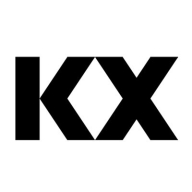

Find out what your peers are saying about Microsoft, Oracle, SAP and others in Relational Databases Tools.


Kx is the world leader in high-performance, in-memory computing, streaming analytics and operational intelligence. The company’s focus is on delivering the best possible performance and flexibility for high-volume, data-intensive analytics and applications. Kx software includes the time-series database kdb+ with a built-in programming language called q, and a robust suite of visualization tools built on top of the database platform providing business intelligence for all users.
Oracle Database In-Memory transparently accelerates analytics by orders of magnitude while simultaneously speeding up mixed-workload OLTP. With Oracle Database In-Memory, users get immediate answers to business questions that previously took hours.
Oracle Database In-Memory delivers leading-edge in-memory performance without the need to restrict functionality, or accept compromises, complexity and risk. Deploying Oracle Database In-Memory with any existing Oracle Database compatible application is as easy as flipping a switch - no application changes are required. Oracle Database In-Memory is fully integrated with the Oracle Database’s renowned scale-up, scale-out, storage tiering, availability, and security technologies making it the most industrialstrength offering on the market.
The ability to easily perform real-time data analysis together with real-time transaction processing on all existing applications enables organizations to transform into Real-Time Enterprises that quickly make data-driven decisions, respond instantly to customer demands, and continuously optimize all key processes.
For more information on Oracle Database In-Memory, visit Oracle.com
We monitor all Relational Databases Tools reviews to prevent fraudulent reviews and keep review quality high. We do not post reviews by company employees or direct competitors. We validate each review for authenticity via cross-reference with LinkedIn, and personal follow-up with the reviewer when necessary.